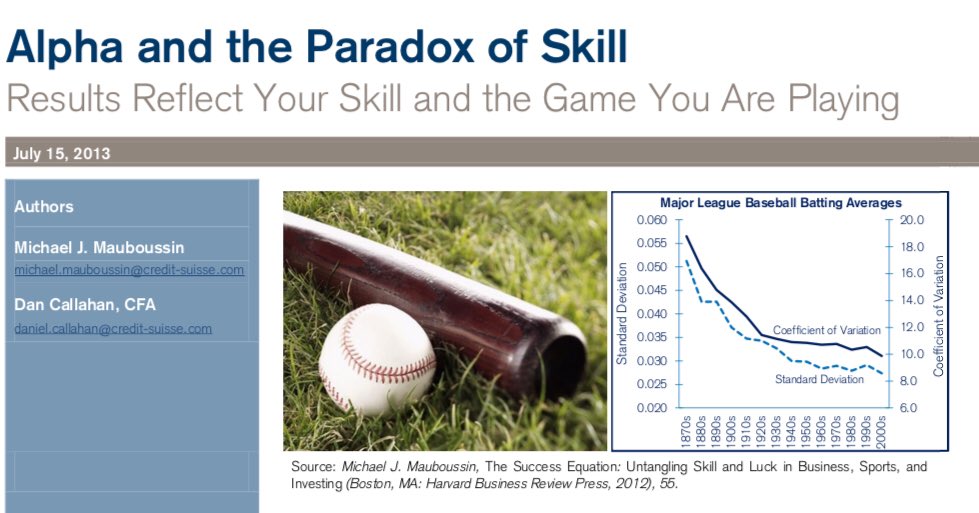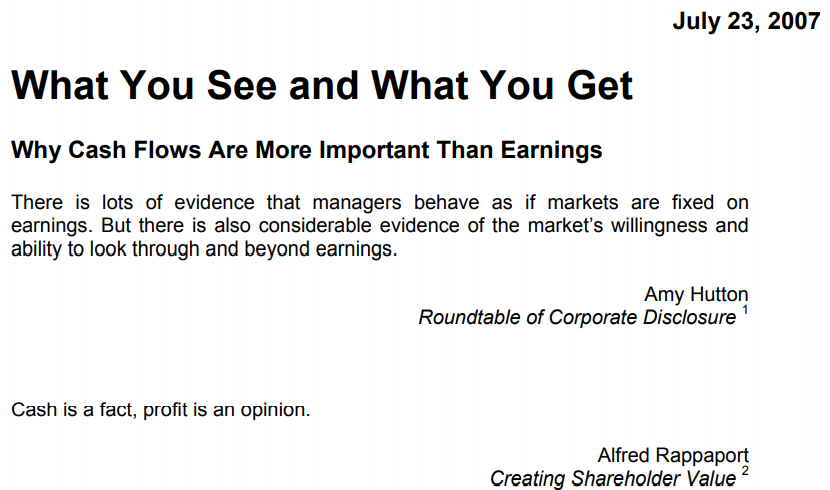
1/ Young investors must walk uphill in deep snow to get to a work investing in markets every single day.
Charlie Munger: "We had idiot competition when we were young. Now we’ve got tough competition scrounging every area and little niche. It's way harder."google.com/amp/s/www.wsj.…
Charlie Munger: "We had idiot competition when we were young. Now we’ve got tough competition scrounging every area and little niche. It's way harder."google.com/amp/s/www.wsj.…
2/ Munger: "It’s gotten hard to find easy value investments because the world is so competitive. That accounts for a buying securities like Apple that we wouldn’t have bought in the old days when we had more mundane things that were serving us very well."
3/ Michael Mauboussin: "An absolute improvement in skill, when combined with a relative decline in the range of skill, means that luck is more important than ever. This concept is called the “paradox of skill.” research-doc.credit-suisse.com/docView?langua… 

4/ Charlie Munger: "The amazing thing is we did so well while being so stupid. That’s why you’re all here: you think there’s hope for you. Go to where there’s dumb competition.” Wesco Annual Meeting 2010. Munger talks about the same idea in this interview. forbes.com/2010/05/12/cha…
5/ Charlie Munger: "The competition sorting through opportunities today is more intelligent, more aggressive, and more numerous. Of course it’s harder. The net result is people are gonna get worse results. The people who start now have lower opportunity." google.com/amp/s/www.cnbc…
6/ Charlie Munger: "The investment world has gotten tougher. Maybe now we have small advantages, when before it was like shooting fish in a barrel.” “We can’t bring back the low hanging fruit; we will have to reach for higher branches.” google.com/amp/s/25iq.com…
7/ Charlie Munger: "It is a good idea to not play where the other people are better.” “The first rule of fishing is to fish where the fish are. We’ve gotten good at fishing where the fish are. There’s too many boats in the damn water, but the fish are still in it.”
• • •
Missing some Tweet in this thread? You can try to
force a refresh



